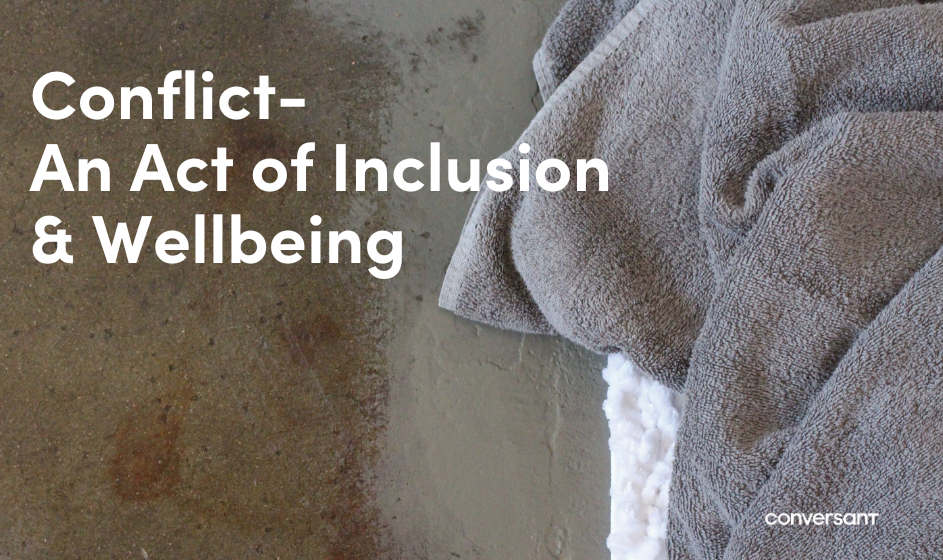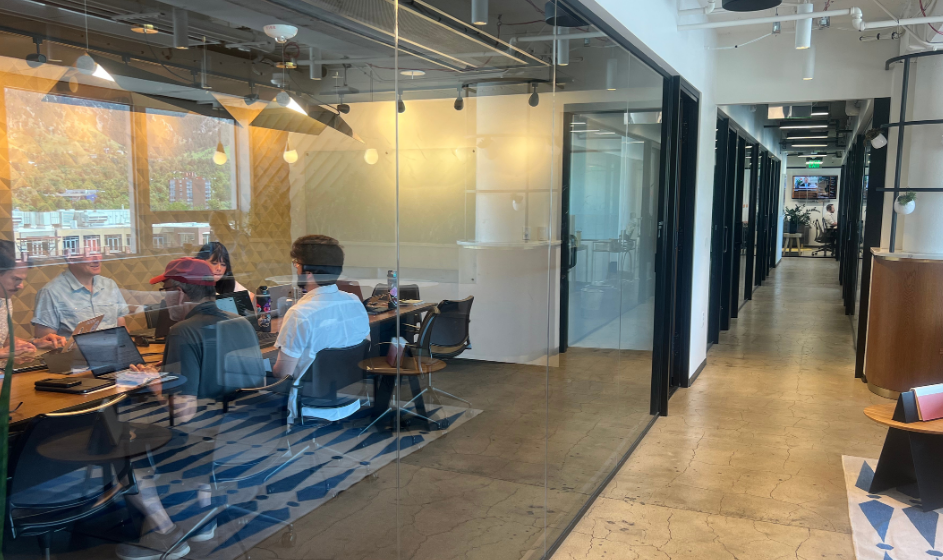I hear all the time from leaders “my team is conflict averse” or “so and so is conflict averse”. I wonder, what do we mean when we say someone is conflict averse? I turned to good old Wikipedia to see how it defined the term.
They actually define ‘conflict avoidance’: a person’s method of reacting to conflict, which attempts to avoid directly confronting the issue at hand.
A double click on ‘conflict’ gives you this definition: a struggle and a clash of interests, opinions, or even principles.
If we’re trying to avoid a difference in interests, opinions and principles, it doesn’t leave much for any two people to talk about! I think when people say someone else is conflict averse, they mean a range of things from; they avoid uncomfortable conversations, to they don’t deal with problems they know exist, to they ‘choose their battles’.
This last phrase I find the most telling about how most of us feel about ‘conflict’; we find it analogous to war. I’m pretty confident that those of you who have experienced the war version of ‘conflict’ would say that the everyday conflicts of organizational life are not remotely the same thing. Yet, we do still see rather visceral reactions to those everyday differences. In the organizations we work with those differences range from differences of opinion about strategy or processes to whether we should be back in the office fulltime or not (yep, I went there – I know that one is a bit real for many of you).
A past colleague and good friend of mine, Keely Cormier, once likened avoiding conflict to throwing a wet stinky towel in the corner of the room and hoping it turns itself fresh and new. This really resonated with me (likely because my kids were teenagers at the time) and I use it often. You can throw that towel in the corner but it’s not going to smell better on its own; it’s generally going to get much, much worse. It needs to get out into the sunlight. In the same way as the stinky towel getting worse, our avoidance of conflict more often than not, leads to bigger challenges – misaligned actions, mistrust, strategic projects stalling, employees underperforming or having to redo their efforts, damaged relationships.
In Gartner’s 9 Future of Work Trends for 2024 #4 is: “Employee Conflict Resolution is the new must have skill for managers”. What if the solution doesn’t lie in confronting conflict head on? While that action will absolutely help, I don’t know that it helps our teams or organizations in the long term since it still relies on individual courage or hierarchal intervention. What if the solution lies in thinking differently about ‘conflict’? Let’s use the Wikipedia definition of conflict as a difference of interests, opinions or values. If I think about any diverse team or group of people, a difference of interests, opinions and value is a natural byproduct of that diversity. What if the path to conflict resolution is to see conflict as a means to belonging and wellbeing? While this might sound like total mental gymnastics, stick with me.
When we avoid conflict, we are avoiding the natural and inherent differences we have as we walk through life in the bodies we have, experiencing the world as we do, caring about the unique things we each care about. By avoiding the ‘conflicts’ of these differences, we also avoid the opportunity to learn how someone else sees the world and how they might solve a problem or a challenge differently. By avoiding the conflict, we also avoid really seeing another person and the things they care most about relative to the work we’re doing together. Avoiding the conflict might have us feel more comfortable momentarily, but it won’t have us feel a deeper sense of belonging or connection to each other and a sense of meaning for the work we’re in. There’s been a lot said about how people are feeling more and more disconnected for each other – what if that’s not because of the conflicts between us but because we’ve been avoiding those conflicts?
Recently, I had a conversation with a past client of mine who shared with me that over the past year, she has been engaging the leaders in her very regional, historically siloed organization in conversations about what it would truly mean to collectively lead the organization from a deep commitment to their articulated vision. She said it was some of the most amazing work she’d done in her life as they truly dug into a shared vision of the future and the places where they disagreed. She said they had conversations that worked to resolve years of underground resistance and created a shared sense of ownership for the changes they are putting into place.
Here are a couple of things to help turn conflict into an asset for belonging instead of something to avoid:
- Get clear for yourself: what you are for vs. what you’re against. When we frame something as conflict we often work to protect something that’s important to us – ask yourself, “what matters most to me about this issue?” “What about that is important to me?” “And what about that is important?”
- Consider a shared purpose: what about resolving the issue is important to all involved (you included)? Another way to get to the heart of a shared purpose is to ask, “what’s at risk by not resolving this issue?” If the issue is keeping you up at night, your own wellbeing might be at stake. If it’s an issue about an employee’s performance, their career advancement might be at risk. You also might be inadvertently excluding a team member from feeling like they are a part of the team.
- In creating a shared purpose, create a ‘we’ mentality to resolve the issue: One of the reasons I see people avoid conflicts is that they are afraid of being blamed or don’t see a way to not blame the other. I had a client that had had the same conversation with an employee about missing deadlines repeatedly. They finally said to the employee – “You can’t possibly want to have this conversation again any more than I do – what do we need to do together to make sure that the commitments made between us are kept?”
I think most of us have a felt sense of when something is being avoided. And like the wet stinky towel, we hold our nose and try to navigate around it. Let’s bring that smelly thing into the light where we can deal with it together – resolving those issues together will actually enhance belonging and trust. And maybe we’ll sleep a bit better too.


